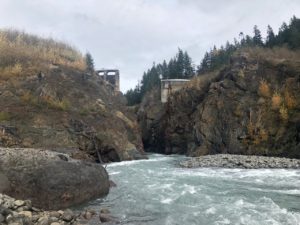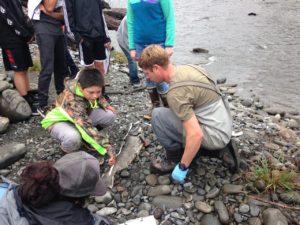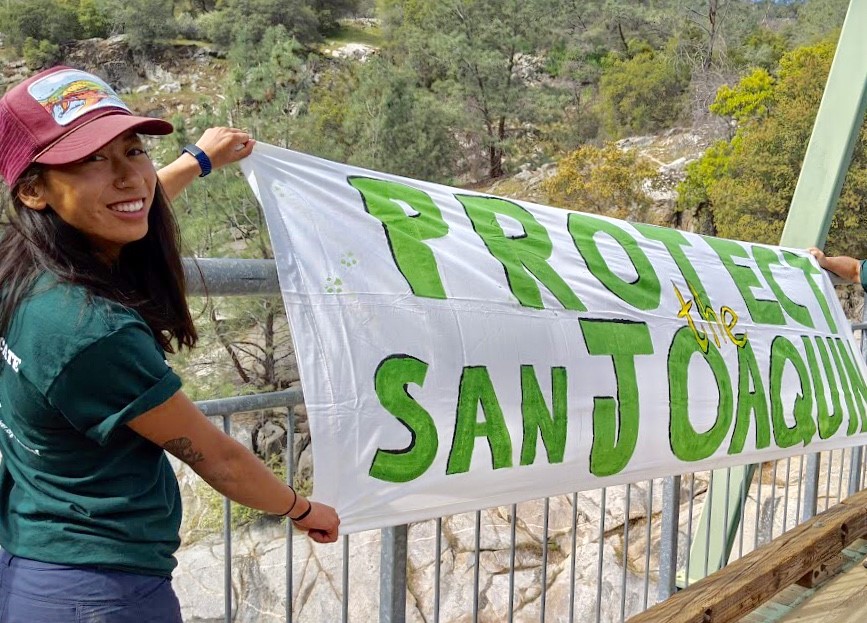Stories of hope.
by Lani Chang

When I first saw the mangled dorsal fin of a Chinook salmon emerge from the surface of the river and fight its way upstream, I knew I was witnessing something remarkable. This was the fourth time that salmon were spawning on the upper Elwha River in the last 100 years. The fourth-year that the river flowed free since the final dam was removed in 2014. My job teaching environmental education in Olympic National Park had brought me to the banks of the Elwha on that day.
While I was tasked with helping students develop a deeper connection to this river and its story through scientific investigations, restoration projects, and storytelling, I too was cultivating a stronger interest and love for the Elwha. With every new season I taught along that river, I learned more about the collective efforts of disparate stakeholder groups and the tenacity of advocates that were responsible for bringing down the dams. There were the tribal members and elders from the Lower Elwha Klallam Tribe who fought tirelessly to restore their cultural heritage, which had been disrupted in tandem with the flows of the river.

There was also Dick Goin, a citizen scientist and fisherman turned conservation advocate who noticed the decline in salmon over his lifetime spent on the river and was a strong impetus behind the dam removals. Through these unfolding stories, I realized just how powerful passionate and driven individuals were to creating these stories of hope.
Last year, I moved back home to California to complete a final season of environmental education in Yosemite Valley. There is no doubt that I’ve found joy helping inspire the next generation of environmental stewards through these hands-on and immersive experiences in the national parks. At the same time, I’ve also begun to feel the draw and need to develop my own personal advocacy to fight for more immediate threats to the environment and places I cherish most. The rivers and landscapes I care about most need both future protectors that I was trying to help foster and strong voices in the present.
When my dad suggested I check out the River Advocacy Training School (RATS) program (a fellow RAT himself). It felt like it had come at the perfect time. The RATS program offers the opportunity to help and advocate for rivers in a more immediate sense, develop skills to become another powerful voice as I had seen on the Elwha, and a chance to join a wonderful, like-minded community. Now that the RATS season is wrapping up, I can say with confidence that I have had the opportunity to do all three.
Though these opportunities weren’t without their obstacles. Advocacy work isn’t always as glamorous as I imagined it being. Our initial plan for the season had to evolve rapidly. COVID-19 hit in the middle of our season, forcing us to adapt and drop our original project in exchange for calling members and gathering stories for the storytelling project. It was sometimes difficult to maintain perspective – especially in the midst of awkward phone calls and rejections. But for every couple of less-than-ideal interactions, I always managed to find a genuine lover of rivers either eager to step up for the first time or seasoned in their advocacy. Those chances are reason enough to keep picking up the phone and finding those passionate individuals who want to fight for stories of hope, just like the Elwha.

